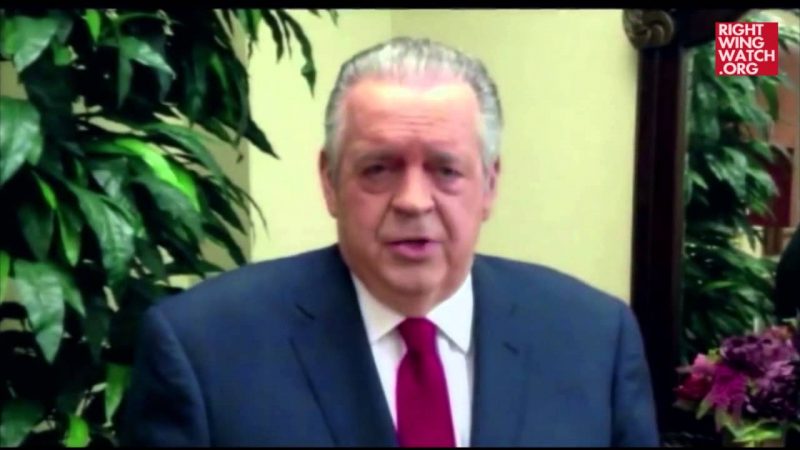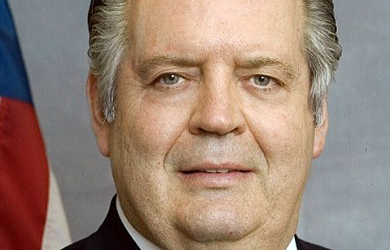Richard Land, head of the Southern Baptist Convention’s Ethics and Religious Liberty Commission, yesterday took up a defiant tone against charges that he used racially-insensitive language during his radio show in his attack on President Obama and civil rights activists over the Trayvon Martin case, saying that he is being “mugged” by the media for simply “criticizing this rush to judgment.” Land on his show had said that “it was Mr. Obama” who turned the Trayvon Martin shooting into a national issue” by pouring “gasoline on the racialist fires” in order to help “gin up the black vote” for his re-election with the aid of “race hustlers.”
But black SBC pastors, including the incoming-president of the convention, criticized Land’s comments and one threatened to introduce a resolution condemning Land at an upcoming meeting, and other Baptists commented that it was reminiscent of Southern Baptists’ past work against the civil rights movement and helped feed “the deep-seated resentment toward people of color held by some white Southern Baptists.”
Land’s problems didn’t end there.
Baptist author and blogger Aaron Weaver found that Land not only plagiarized his controversial rant from a Washington Times column by Jeffrey Kuhner, but also that Land has repeatedly plagiarized editorials verbatim from other right-wing publications like the Washington Examiner and Investor’s Business Daily.
Not a good move for the SBC’s “chief ethicist,” who used his title as ethicist while defending his comments about the Trayvon Martin case: “defending people who are being lynched in the court of public opinion is part of my job as an ethicist.”
Rather than apologize for the two incidents, Land instead said he is simply sorry that others have “misunderstood” his comments on Martin or his blatant plagiarism.
First, Land admitted to failing “to provide appropriate verbal attributions” during his show but not to plagiarism, saying he regrets “if anyone feels they were deceived or misled”:
On occasion I have failed to provide appropriate verbal attributions on my radio broadcast, Richard Land Live!, and for that I sincerely apologize. I regret if anyone feels they were deceived or misled.
…
While I do not use a script, listeners familiar with the program know that both the audio of the program and material I reference during the program are posted on the program’s Web site during or immediately following the broadcast.
However, Weaver notes that Land unmistakably tried “to pass off Kuhner’s words as his own” and even “attempted to make Kuhner’s words his own by adding extra comments and using different adjectives,” pointing out that while Land includes a link to Kuhner’s article on his website no author can “write a 500-word essay, pull 250-300 words verbatim or nearly verbatim from someone else and simply include a short footnote at the bottom.”
Land kept up with his “sorry if you misunderstood” mantra in a letter to SBC president Bryant Wright posted late on yesterday where he again offered a non-apology about the “misunderstanding” regarding his comments, complaining that he “overestimated the progress” the country has made on issues involving race:
I am writing to express my deep regret for any hurt or misunderstanding my comments about the Trayvon Martin case have generated. It grieves me to hear that any comments of mine have to any degree set back the cause of racial reconciliation in Southern Baptist or American life. I have been committed to the cause of racial reconciliation my entire ministry. Dr. Martin Luther King Jr., a Baptist minister has been a personal hero of mine since I surrendered to the ministry in 1962.
…
Clearly, I overestimated the progress that has been made in slaying the ugly racist ghosts of the past in our history. I also clearly underestimated the extent to which we must go out of our way not to be misunderstood when we speak to issues where race is a factor.
Please know that I apologize to any and all who were hurt or offended by my comments. I will certainly recommit myself to seeking to address controversial issues with even more sensitivity in the future.








